Corsair Performance Series Pro (256GB) Review
by Kristian Vättö on May 14, 2012 9:10 AM EST- Posted in
- Storage
- SSDs
- Corsair
- Marvell
- Corsair Performance Pro
Random Read/Write Speed
The four corners of SSD performance are as follows: random read, random write, sequential read and sequential write speed. Random accesses are generally small in size, while sequential accesses tend to be larger and thus we have the four Iometer tests we use in all of our reviews. Our first test writes 4KB in a completely random pattern over an 8GB space of the drive to simulate the sort of random access that you'd see on an OS drive (even this is more stressful than a normal desktop user would see).
We perform three concurrent IOs and run the test for 3 minutes. The results reported are in average MB/s over the entire time. We use both standard pseudo randomly generated data for each write as well as fully random data to show you both the maximum and minimum performance offered by SandForce based drives in these tests. The average performance of SF drives will likely be somewhere in between the two values for each drive you see in the graphs. For an understanding of why this matters, read our original SandForce article.
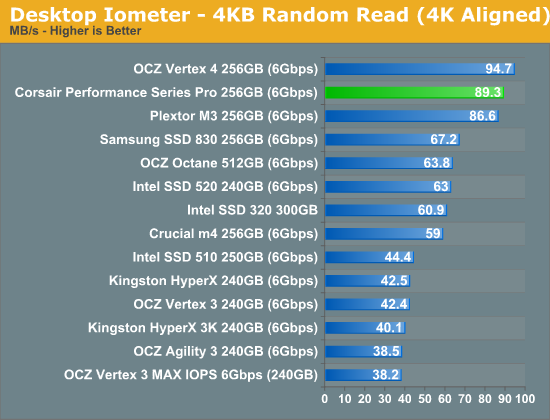
Performance Pro's random read performance is slightly faster than Plextor's M3's but there is essentially no difference. In general the random read performance is excellent, as expected.
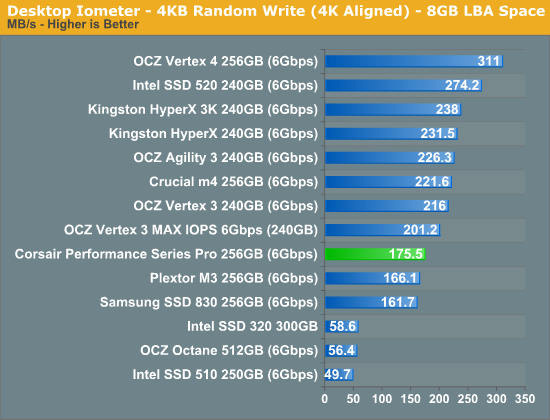
Random write performance is not top-notch but still ~6% faster than what Plextor's M3 provides.
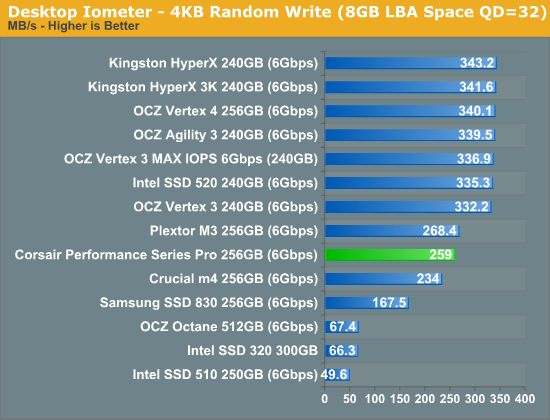
Increasing the queue depth shows an increase in random write performance but this time the M3 is a bit faster. We are only looking at a difference of ~4% though, and it should be noted that most workloads don't use queue depths higher than 5.
Sequential Read/Write Speed
To measure sequential performance we ran a one minute long 128KB sequential test over the entire span of the drive at a queue depth of 1. The results reported are in average MB/s over the entire test length.
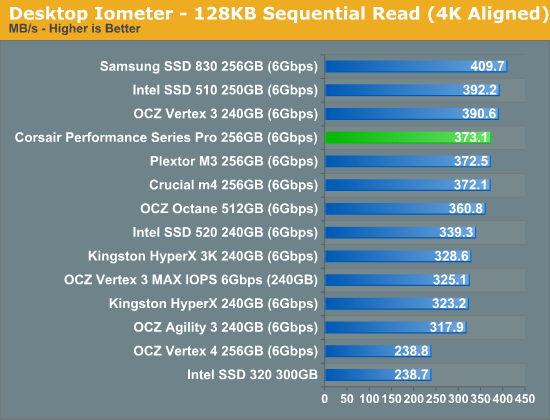
Again, identical performance with Plextor M3 and this time Crucial's m4 joins the chorus as well.
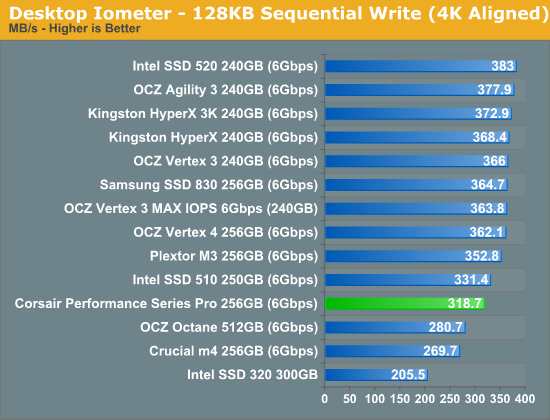
Sequential write introduces some surprises. Plextor M3 is 34MB/s (10.7%) faster here while in other tests the two were much closer to each other. However, one shouldn't pay too much attention to just one test and our Storage Suites should give a much better look at real world performance.










41 Comments
View All Comments
Arbie - Tuesday, May 15, 2012 - link
What about write amplification and the longevity of the drive? I thought that would be a hot topic given the aggressive garbage collection! AT is about the only site where such a thing would even be addressed, so I'm sorry there's no discussion here.